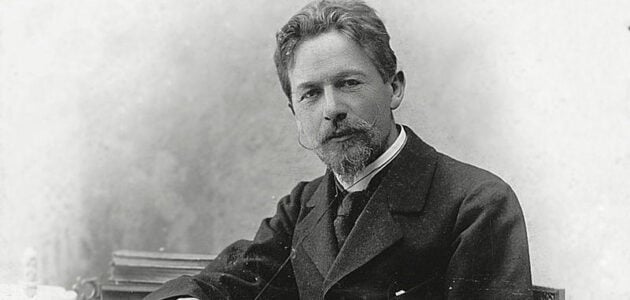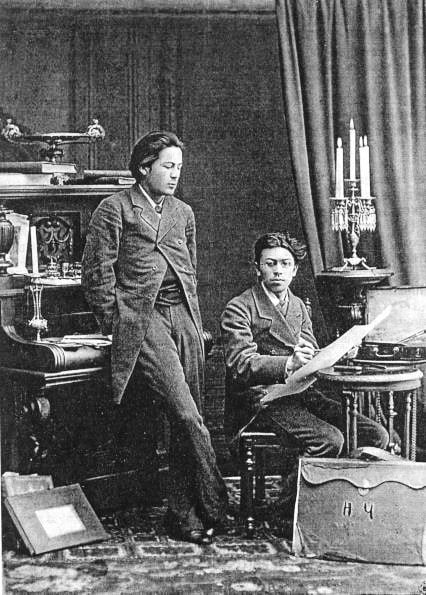
How to Act Chekhov
There are not many playwrights in this world that warrant having their own ‘style’ but Chekhov is one of them. Now I’m not a hard and fast advocate for playing ‘style’ but I am a firm believer in the fact that in order to break the rules, you have to understand them first. So here I’m going to breakdown what I think are the key components of acting Chekhov.
An Actor’s Process for Approaching Chekhov
We will begin with subtext and work our way through the major areas we need to focus on as actors.
Subtext
Noun. the implicit or metaphorical meaning (as of a literary text)
Now for me, the first thing that comes to mind when thinking about Chekhov is subtext. Subtext is everywhere. From indie-darling short films all the way back to Shakespeare. There are those who would say that Shakespeare has no subtext. To those people, I would like to point them in the direction of one of Shakespeare’s greatest villains: Iago. But that’s another article. Anyway…
Subtext is a critical piece of storytelling. Subtext tells us what is happening beneath the surface. What’s going on inside a character’s head. Or what they’re trying to do. What I’m essentially getting at is there is a reason subtext is so widely used and why Chekhov was obsessed with it. Human beings lie. Not always for the wrong reasons, we lie to self-preserve, we lie to protect loved ones from pain, and we lie to keep the peace. But for whatever reason, we lie. Plain and simple.
The main takeaway from this for you, dear reader, is that when you’re approaching a Chekhov piece, the subtext should be at the forefront of your mind. You should by most accounts be approaching the role as normal, from a place of truth. But the subtext of what is going on in your characters head should be what you’re mining for. It will tell you who they really are, what they really want, and how they plan to get it.
Chekhov’s world is dripping with subtext and it is packed to the rafters with characters just barely keeping their true thoughts, feelings and plans beneath their thin veneer of etiquette. Which brings us to our next point…
Etiquette
Noun. the conduct or procedure required by good breeding or prescribed by authority to be observed in social or official life
Now not every production of a Chekhov play is going to be set in 19th Century Russia literally, however it is worth taking into consideration when approaching a Chekhov play that these people are of a very particular time and a very particular place. They carry themselves in a certain way, and they have certain rituals which they would have adhered to in day-to-day life. They dressed a certain way and their particular snapshot of history is quite remarkable. You must take these things into consideration when you’re looking at one of these texts
Read: Best Chekhov Plays
Humanity
Noun. the quality or condition of being human; human nature.
With all of that being said it can be very easy to fall into playing style, which is not what you should be aiming to do. Yes, it must be considered, but only so far as it helps you to tell the story of the human beings you are portraying on stage. These characters are at their core just like you and me. They have hopes, dreams and struggles just like we do and they are no less human struggles than yours or mine. They love, they lie, they help and they cheat. At the core of every one of these characters is a person. Finding who they are beneath their outward expression is equally if not more important than portraying the etiquette of their world.
Plot
Noun. Also called storyline. the plan, scheme, or main story of a literary or dramatic work, as a play, novel, or short story.
Spoiler, there kind of isn’t one sort of, kind of, but there is. Let me explain. Chekhov’s “plots” as they were, are kind stories about the human reaction. Yes, “Chekhov has no plot” is one way to look at it. But the other way is to think of performing a Chekhov play as a deep character study. Where all you need to do is live the life of that character, and go through their emotional trials and tribulations with them. That is the story. It’s the story of these characters emotional journeys and reactions to the trials and tribulations of life. Identify the emotional through-line of your character and you’ve identified your characters ‘plot’.
Relationship
Noun. an emotional or other connection between people.
So, we’ve identified that emotional trajectory is a key part of the journey of a Chekhov character. But if there’s no traditional concrete plot, what is it that your characters getting so arced up about? Well… the other characters. We all know how upset we can get when our housemates leave their stuff all over the house or don’t do their dishes for a week. Now imagine that the person you’re engaged to doesn’t really love you as much as you love them, plus you have to go and have a gun duel at sunrise with the other person who really wants to marry your fiancé. You’d probably be pretty bummed. You’d probably also be playing Baron Tuzenbach from Three Sisters.
My point is that these characters go through a lot of emotional turmoil and it is almost always stemmed from the other characters in the play. As Uta Hagen says, you must know your relationship with every other character on stage. Only then will you react accordingly when they inevitably fall in love with you, make fun of you, or threaten to shoot you.
Objective
Noun. something that one’s efforts or actions are intended to attain or accomplish; purpose; goal; target.
Finally, I’d like to talk briefly about objective. One of the actor’s greatest allies! Well my friend, unfortunately, objective is going to have to take the back seat for this ride. I know that this one might sound weird, but it’s what works for me when playing Chekhov. The way it was explained to me is that when you’re pursuing an objective, you’re on a very straight and narrow path. For many pieces, this works!
But in Chekhov, it can take you away from living through the experience of the character. Through their day-to-day life. Your objective when saying goodbye to the man that you love is probably going to be different to your objective when you’re pouring a cup of tea. And in Chekhov, this sort of thing can happen in the span of about 10 lines. Yes, this isn’t for everyone, so please take it or leave it. But it’s what works for me. It’s my belief that when you’re acting in a Chekhov play, if you understand what you’re thinking, how to behave, what your characters through-line is, and what your relationships are, the rest will take care of itself.
Conclusion
This is by no means an excessive list, nor is it meant to be a definitive guide to breaking down and performing Chekhov. It should, however, give you the core principles it takes to understand what separates Chekhov from other playwrights and to avoid falling into the abyss of ‘style’. If you’re interested in finding out more about Chekov take a look at our list of his best plays here.
With that being said, I would implore you to spend some time in Chekhov’s world as its easily one of the most fascinating in the theatre cannon. So bust out the samovar, put on your heaviest winter coat and enjoy!

Leave a Reply